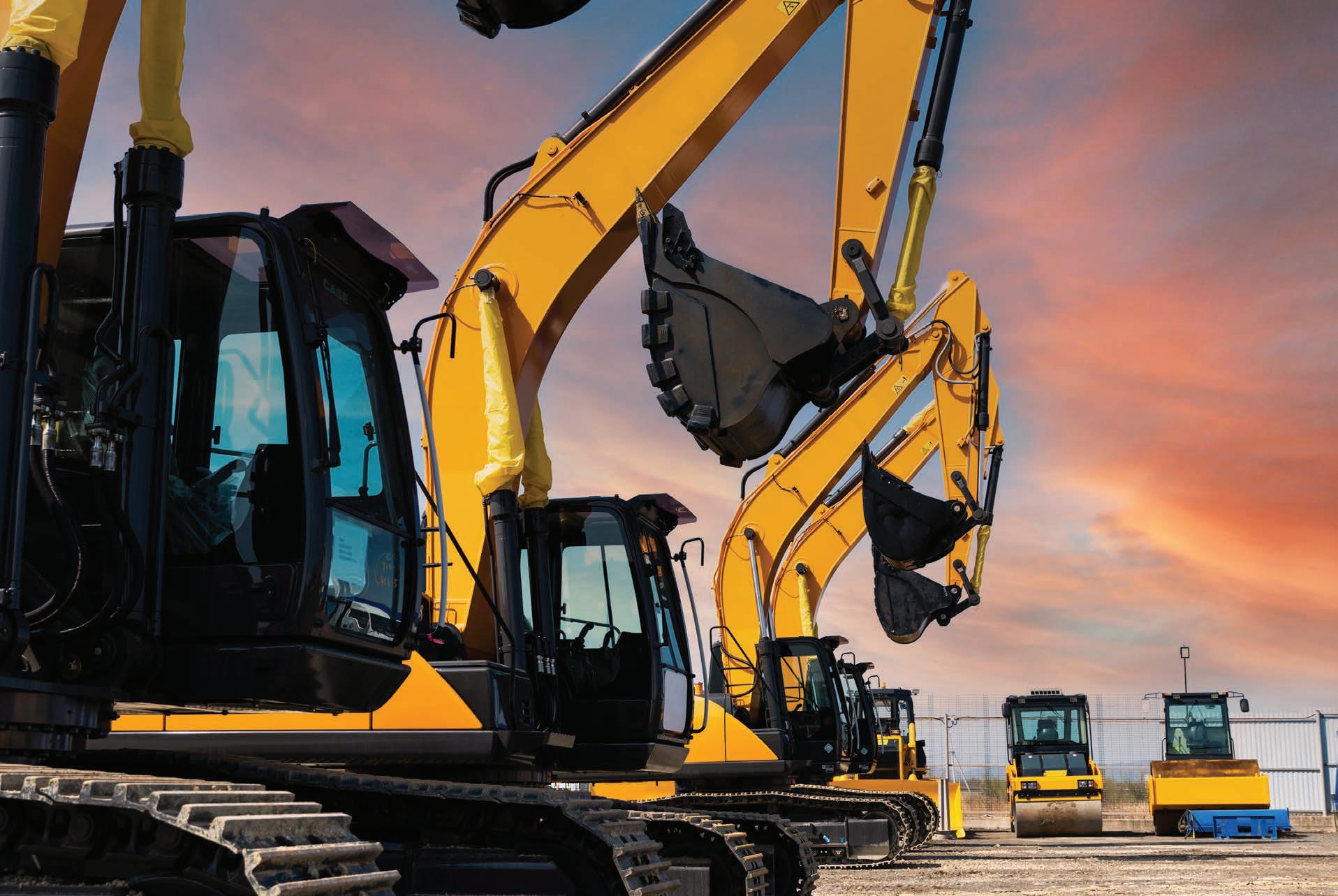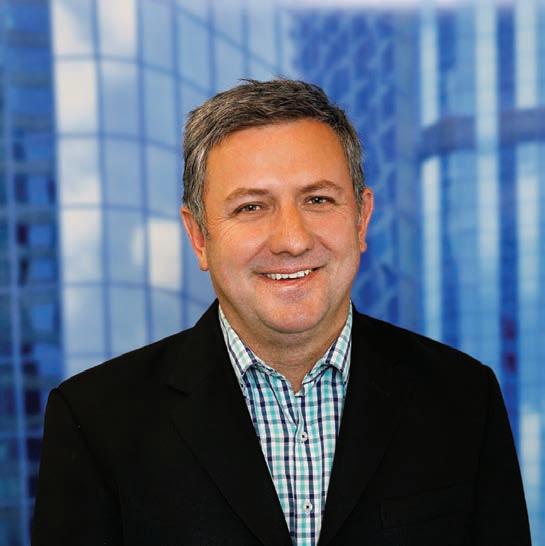
4 minute read
Resilience strategy for plant owners
RESILIENCE STRATEGIES FOR PLANT OWNERS
ROADS & INFRASTRUCTURE TALKS TO ZURICH RESILIENCE SOLUTIONS’ PRINCIPAL RISK ENGINEER, EVAN BLACKBURN, ON IDENTIFYING AND MITIGATING RISK AREAS FOR HEAVY EQUIPMENT AND MOBILE PLANT OWNERS.
With 25 years of experience in the insurance industry, including 20 years in risk assessment, Evan Blackburn has a deep knowledge of key risk areas across multiple industries.
As the Principal Risk Engineer at Zurich Resilience Solutions, Blackburn specialises in mining insurance risk assessments, advising heavy equipment and mobile plant owners on potential risk areas within the industry, and helping to moderate these risks.
When it comes to heavy equipment and mobile plans, Blackburn says a number of risk areas remain dominant in the civil construction industry. Topping that list is natural hazards.
As proven by the devastating floods in Queensland and New South Wales in March, natural hazards such as cyclones, floods and fires can pose a serious threat and considerable financial loss to asset owners.
Blackburn says that such risks within the civil construction industry can be alleviated by following the correct processes.
“An example would be a site-specific risk assessment to understand natural hazard exposure from flooding, storm water and catchment water and adopting management plans for these hazards. Having trigger action response plans for storm events means a mobile plant can be moved to higher ground to prevent damages,” he says.
Similarly, Blackburn says risk engineers can assess the state of equipment maintenance to help asset owners with better fire protection for their stationary and mobile equipment.
Zurich Resilience Solutions addresses a rapidly changing risk landscape with a holistic approach.

Another key area where Blackburn says risks often emerge is related to employee competency and operator training. This also extends to equipment hire and having control over dry hiring. Here, he says, implementing procedures such as safe work method statements – better known as SWMS – can help put in measures to control the risks.
Negligence on worksites is an example of a recurring risk for mobile plant owners, with factors such as operators not assessing surroundings, lack of security on site and failure to take adequate precautions potentially ending in financial losses.
“These can bring about repair costs, both for the infrastructure and the owner’s equipment, as well as recovery costs for any affected third parties,” Blackburn says.
“Add to that the loss of productivity the owner has to endure during the equipment downtime, and suddenly you are seeing huge repercussions resulted from a slight oversight,” he points out. ZURICH’S APPROACH Providing insurance for small, mid-size, large and multinational companies, the Zurich Group supports a range of insurance services to more than 215 countries and territories globally.
Blackburn says the Zurich Resilience Solutions package was created to address risks with a holistic approach, taking into consideration the rapidly changing risk landscape. A key strength of Zurich Insurance, he says, is its wording.
“The foundation of the Zurich process is Zurich Resilience Solutions engagement, to undertake a fleet-mobile plant risk assessment to better understand the fleet exposures and controls, therefore helping to identify these risks before they become serious issues,” he says.
“Zurich’s policy wording is market leading in the plant and equipment space. Our policy can be specifically tailored to the customer’s needs in terms of structure and coverage with the ability to choose from a range of additional benefits such as downtime, increased cost of working, hire charges, hired in, hired out and more,” he adds.
The Zurich Resilience Solutions team is made up of Zurich’s risk engineers, which aim to help companies better manage their exposures.
“Our experienced team of risk engineers have deep industry knowledge to help address the risks and exposures for our customers, not only from an equipment perspective, but also from additional areas of risk such as workers’ compensation, public liability, contract works and cyber insurance.”
Businesses that present lower exposure areas can also be rewarded as part of Zurich’s package.
“There are potential actions that could be taken to reduce risk and they would be identified [by Zurich’s risk engineers] during the mobile plant risk assessment. If the risk grades well, then this will positively impact our exposure pricing, which ultimately could lead to a reduced premium,” Blackburn says.

UNDERSTANDING URGENCY Blackburn says that one of the core benefits of early risk mitigation is reducing downtime for operators. For affected customers, Zurich delivers service with a sense of urgency.
“We understand how important it is for businesses to keep on working, so if an affected client has an item of equipment that requires timely repairs, we can immediately hire a replacement item so they can continue to work,” Blackburn says.
“Our customers also have peace of mind knowing that any additional plant items, either owned or hired, are automatically covered under our policy with the ability to use their choice of repairer.”
As Blackburn explains, businesses can exponentially reduce their chances of encountering hazards by following some simple tips.
“I would advise operators to avoid using labour hire operators where possible, as this introduces greater risk to the business and adds potential for mobile plant losses,” he says.
“Also ensure verification of competency (VoC) is strictly enforced for mobile plant operators and establish a best practice process for time-based refresher of VoCs across all of your mobile plant types, not just the high-risk equipment. These controls are even more important if labour hire cannot be avoided.”
Irrespective of the degree or type of risks involved, Blackburn says heavy equipment and mobile plant owners can be certain that Zurich’s experienced team will find the right outcome to fit their needs.
“At Zurich we deal with many types of plant and equipment exposures, but our primary objective is to deliver a comprehensive and tailored insurance solution for each individual business.”
Evan Blackburn, Principal Risk Engineer, Zurich Resilience Solutions.










